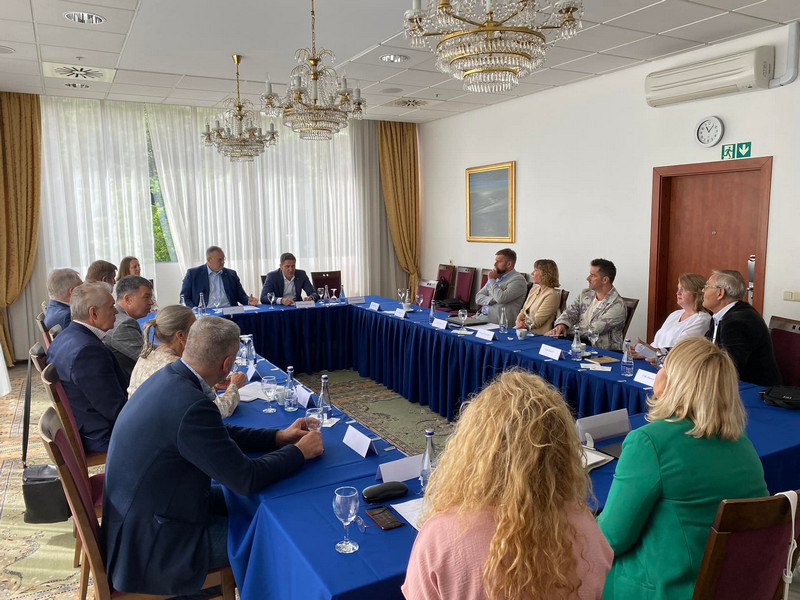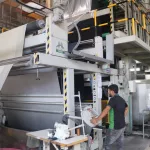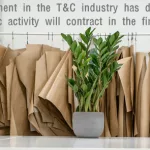
The Minister of Energy met with members of the LATIA Association
Minister of Energy Dainius Kreivys met with members of the Lithuanian Textile and Clothing Association (LATIA). Light industry business representatives initiated this meeting in response to the rising prices of energy resources in global markets and in Lithuania.
According to D. Kreivis, there are more than one reasons that have a transformative effect on the price of energy resources: changes in the global raw material markets, first of all a reduction in the supply of Russian natural gas to Europe and an increase in its price, and then the war in Ukraine. “Currently there are several crises happening at the same time. Of course, the war in Ukraine is one of them. With all its consequences. A physical and energy war is developing, so prices are not shaped by the market, but by geopolitics. Other unplanned events, such as the Freeport fire at one of America’s largest liquefied natural gas terminals, also affect prices. For this reason alone, the price of gas jumped from approximately 90 EUR/MWH to 120 EUR/MWh,” said the minister.
Reviewing the reasons for particularly high electricity prices, the minister drew attention to the consequences of nuclear energy, which was abandoned in the past. According to him, if we currently had a nuclear power plant in the country, electricity would be significantly cheaper in Lithuania. “The biggest problem of Lithuania’s energy strategy is that we did not build our own electricity generation. A nuclear power plant was planned for this. If we still had this type of power plant today, the price of electricity would be 5-6 times lower. Let’s imagine: it’s 68 Eur/kWh instead of around 360 Eur/kWh. Here in France, a whole series of nuclear reactors has been closed, so instead of one of the largest exporters of electricity, it has become an importer. After abandoning this energy source, the supply in the entire market decreases significantly, but the demand does not disappear anywhere – the prices rise. This is how the market works. Then there is a need to burn gas for electricity production, which greatly affects the prices of all resources. It is a closed loop that connects energy resources to the demand chain.”
The curve during the meeting reminded of the upcoming positive changes in the electricity market. “The good news is that the 3rd reactor of the Olkiluoto nuclear power plant will be commissioned in Finland within the year. This will have a significant positive impact on electricity prices in our region. Gradually, the prices may even be reduced by half.” It is true, when it comes to gas, the minister stated that to expect lower prices without 2024. would be unlikely.
State support for business is available
During the meeting, business representatives shared their fears that bills for energy resources are growing exponentially, so a solution and help is needed as soon as possible.
“Bills received by association members for electricity costs alone, compared to the previous two months, have doubled. It can be seen that the companies still have room to amortize the growing resources, but for how long? I don’t want to guess, so I need help here and now. In many cases, the equipment in the textile and clothing sector is specific and requires a lot of electricity, such as steam engines. When it comes to financial assistance, it is necessary to look for solutions that would fundamentally change everything – change the energy source itself. This requires a lot of investment and possible help from the Government,” LATIA Association President Kęstutis Daukšys told the participants.
“The state allocates 120 million euros to business. For a business that faces the dilemma of high energy prices, whose competitiveness suffers the most. The measures are currently distributed by the Ministry of Environment of the Republic of Lithuania. Now is a good time to apply as this package is just being formed. There is also a budget for climate change, which amounts to approximately 90 million euros,” commented D. Kreivys.
Minister D. Kreivys suggests that businesses focus on renewable energy. “There probably won’t be another way. Businesses themselves should also invest in renewable energy without waiting for anything. The aspiration is to produce a greater part of the energy resources ourselves. It is realistic to install a solar park on the roof of a building within a year, which would start generating financial returns and energy independence before long. I would advise you to do this as soon as possible. Lithuania is one of the most liberal countries when it comes to renewable energy – we got rid of a lot of bureaucratic processes in order to be able to act promptly.” The Seimas has already adopted a package of legislative amendments aimed at implementing the smooth and rapid development of green energy, reducing bureaucratic obstacles and excessive restrictions on solar and wind power plants, create favorable conditions for the growth of the number of producing consumers, promote the creation of energy communities and respond to the needs of the population. The amendments pave the way for the rapid development of renewable energy and will ensure the availability of support for investments, lower investment risks, more flexible conditions and innovative business models for participating in the electricity market.
For a faster business transition to green energy by 2030. According to the proposal of the Ministry of Energy, 234.1 million euros was allocated. Of them, 170.1 million euros will reach companies by the end of 2023. Businesses will be encouraged to produce and store electricity for their own needs, as well as to increase energy efficiency. State co-financing will also be dedicated to the integration of private electric car charging stations investing in the production of green hydrogen, biomethane production facilities and biofuel production.





